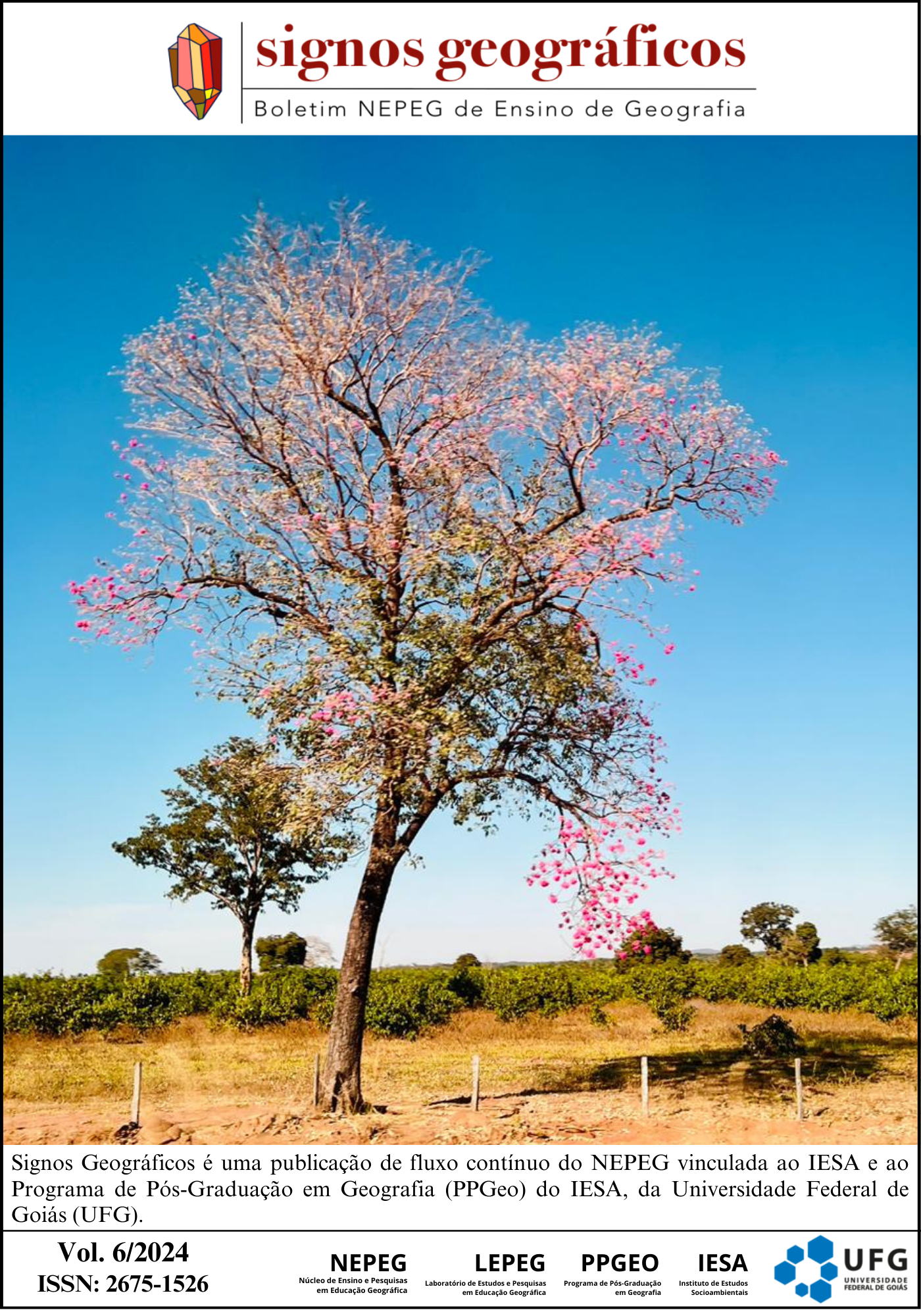Reflexões da estética e da ética na apresentação do Referencial Curricular Gaúcho (RCG)
DOI :
https://doi.org/10.5216/signos.v6.77434Mots-clés :
políticas educacionais, Referencial Curricular Gaúcho (RCG), estética, éticaRésumé
Os documentos de políticas educacionais possuem relevância na indução das práxis escolares, bem como nos desafios relacionados aos seus entendimentos, como por exemplo, as éticas e estéticas que compõem tais normativas. Nesse sentido, o presente trabalho se constitui de uma apresentação dos resultados da pesquisa de Mestrado, inserida na linha de Políticas Educacionais do Programa de Pós-Graduação em Educação da Universidade Federal da Fronteira Sul (UFFS) – Campus Chapecó-SC. A pesquisa teve como material central o estudo da parte introdutória do documento Referencial Curricular Gaúcho (RCG), que apresenta noções estruturantes do conjunto normativo da educação do estado do Rio Grande do Sul. Nesse contexto, a pergunta de pesquisa foi: como a perspectiva est(ética) está apresentada no texto introdutório do Referencial Curricular Gaúcho (RCG) enquanto aspecto sinalizador da ética à educação escolar? Nesse caminho, problematizaram-se aspectos éticos apresentados à educação escolar do texto introdutório do RCG. Com apoio em teóricos do campo da educação, das políticas educacionais e da linguagem - entre eles Paulo Freire, Mikhail Bakhtin, Roque Moraes e Jefferson Mainardes, buscou-se investigar o RCG, bem como os aspectos relativos à estética e ética apresentados no documento. A metodologia que orientou a pesquisa baseou-se na hermenêutica dialógica, mediante a utilização dos aspectos da Análise Textual Discursiva, considerando interfaces com a unitarização, categorização e metatexto para o estudo dos dados textualizados no RCG. O conjunto est(ético) resultou na emergência de categorias que destacaram a importância da compreensão da ética na educação, apresentada enquanto constitutiva dos sujeitos. Neste sentido, foi possível observar noções de individualização curricular, imputando à escola aspectos que indicam uma formação baseada na individualização e na competição.








